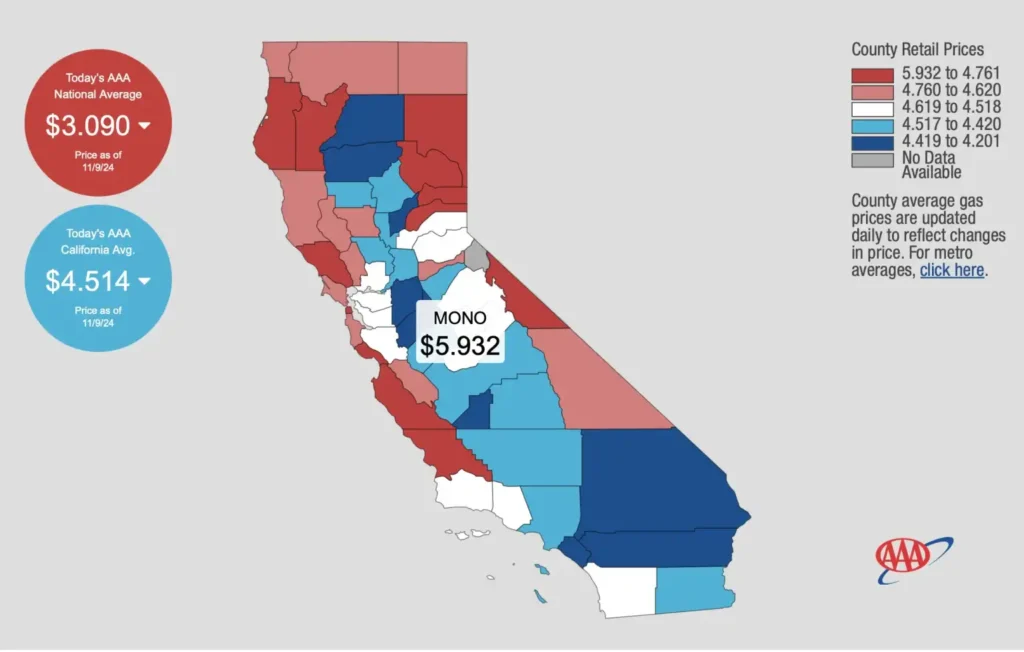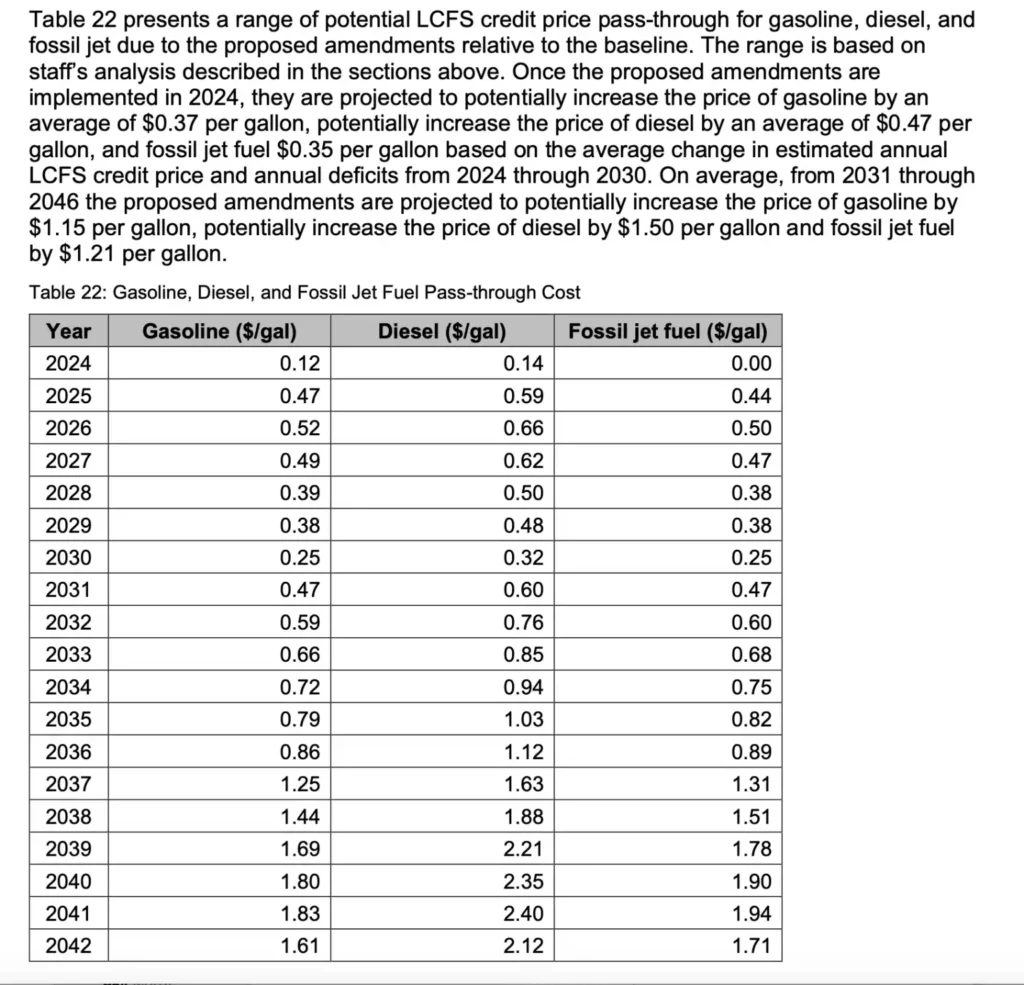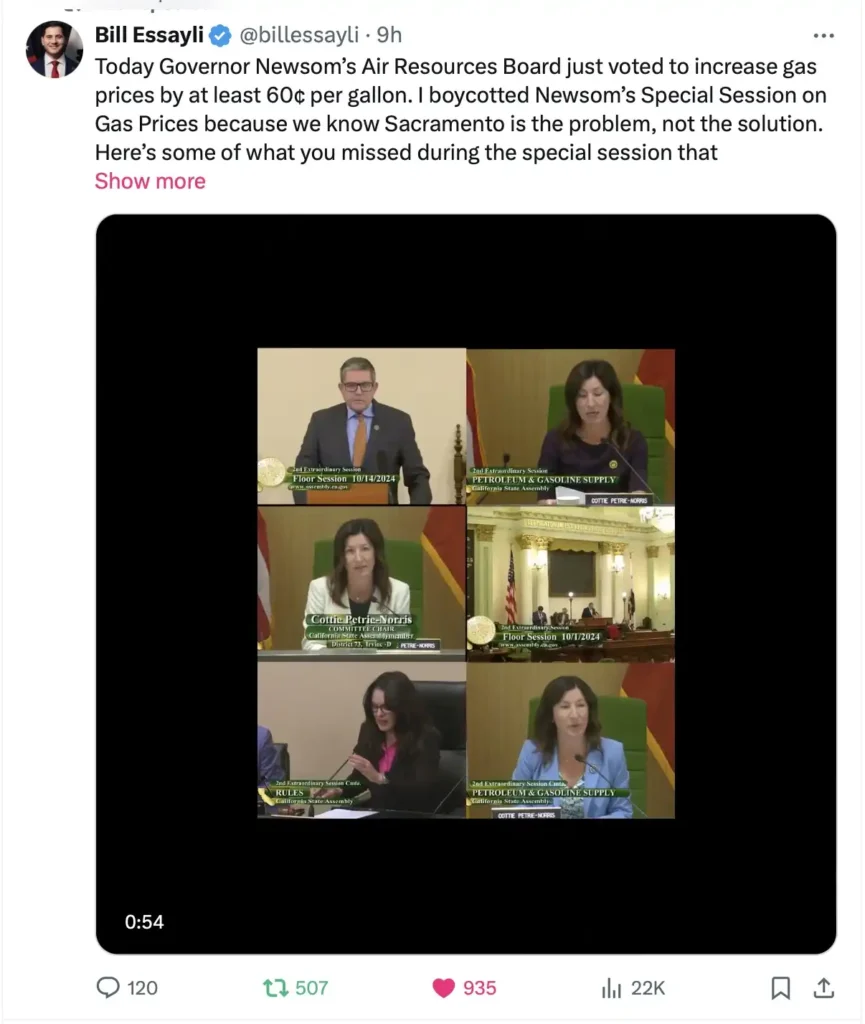|
Getting your Trinity Audio player ready...
|
In a controversial move that has ignited heated debate across California, the California Air Resources Board (CARB) voted on Friday to implement new gas regulations that will add up to 65 cents per gallon to fuel prices across the state. The decision comes amid growing tension between environmental policy goals and consumer affordability concerns.
The New Regulations
The board’s decision centers on significant updates to the Low Carbon Fuel Standard (LCFS), a program designed to reduce the environmental impact of transportation fuels. According to CARB Chair Liane Randolph, who opened the meeting with a clear stance on climate policy,

We know to address climate we need to reduce use of fossil fuels.
Board member Susan Shaheen defended the decision, stating,
This policy is key to the electric vehicle transition that we need.
She emphasized the importance of monitoring and implementing safeguards as the state navigates this significant change.
Economic Impact and Timeline
The new regulations are set to take effect in January 2025, with CARB’s documentation outlining tax increases through 2042. The decision comes at a time when Californians are already facing some of the highest fuel prices in the nation, leading to intense criticism from various stakeholders.
Political Response and Opposition
The decision has drawn sharp criticism from state legislators, including Assemblyman Bill Essayli (R-Corona), who boycotted Governor Newsom’s Special Session on Gas Prices. Essayli argued on social media that

Sacramento is the problem, not the solution.
Regulatory Oversight and Board Composition
The decision was made by CARB’s 16-member board, with only two members voting against the new regulations. It’s worth noting that CARB is composed primarily of governor-appointed officials, with additional members appointed by the Senate President Pro Tem and Assembly Speaker.

Broader Policy Context
The vote aligns with California’s larger climate strategy, which includes:
- Cap and trade program set to expire in 2030
- Goal to ban petroleum-powered internal combustion engines by 2035
- Push for widespread electric vehicle adoption
Industry Impact and Enforcement
CARB has shown increasing regulatory muscle in 2024, having issued 82 penalties this year alone. Notable recent actions include:
- $82 million penalty to Valero Refining Co.
- $20 million penalty to Chevron’s Richmond refinery
- $5 million penalty to Marathon’s Martinez facility
Public Response and Concerns
Critics argue that the new regulations will disproportionately affect middle and working-class families, potentially forcing choices between basic necessities like groceries and transportation fuel. Environmental advocates, however, maintain that these measures are necessary for California to meet its climate goals.
Members of the California Air Resources Board are appointed as follows:

Looking Forward
A group of lawmakers is scheduled to lead a climate change discussion in December, with energy experts anticipating potential extensions to existing programs. The implementation of these new regulations will be closely watched as California continues to position itself as a leader in climate policy.
The decision represents a significant milestone in California’s aggressive push toward reducing fossil fuel dependence, though its impact on consumers and the economy remains a subject of intense debate. As the state moves forward with these regulations, the balance between environmental goals and economic realities will likely continue to be a central point of discussion in California politics.
For More News Update Visit California News



